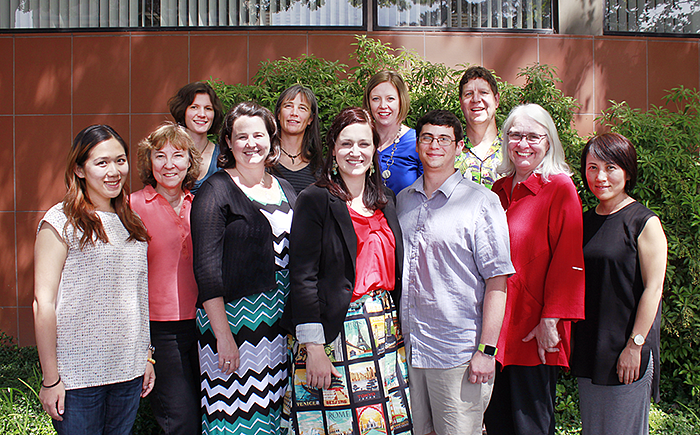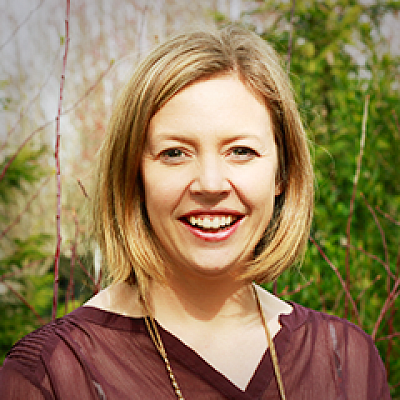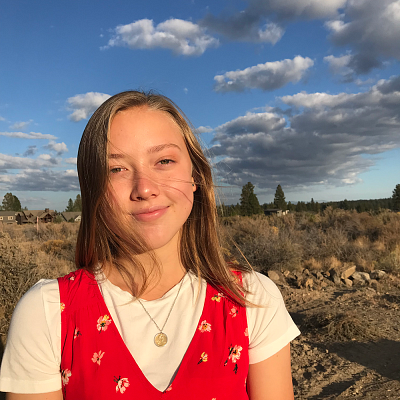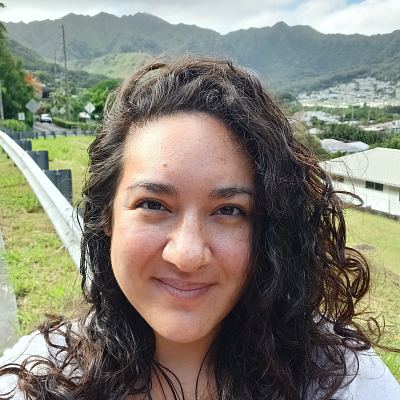The Department of Linguistics faculty conduct research across a variety of sectors. Our corpus linguists take a big data approach to investigating language use and development from a social and cognitive perspective using methods and tools that feed research and product development in the technology sector.
Our fieldworkers document and analyze the grammatical patterns of understudied languages to infer typological relations and communicative constraints on language change. They also seek to sustain the diversity of languages in the world.
Our psycholinguists investigate physiological, cognitive, and social constraints on spoken language processing and development in first and second language to advance fundamental research relevant to language learning and use in healthy speakers with communication disorders.
Affiliated Centers and Institutes

Center for Applied Second Language Studies
At the CASLS, we develop research-based curricula, professional development resources, and assessments to support infrastructure and innovation.

Northwest Indigenous Language Institute
NILI supports and strengthens language preservation and revitalization efforts. With tribal, academic and community partners, NILI establishes collaborative, on-going projects which meet the specific needs and desires of each language community.

Julie M. Sykes, Professor of Linguistics, Center for Applied Second Language Studies
Julie’s research is focused on transformational approaches to the teaching and learning of second languages, and more specifically, the teaching and learning of intercultural pragmatics (i.e., politeness, communicative functions, and patterns of interaction) utilizing digital games and simulations. This interdisciplinary research draws upon work in applied linguistics, discourse analysis, psychology, educational gaming, and game design to create, implement, and assess game-based learning materials. Using games and play as teachers, Julie’s work helps language learners navigate the complexity of human communication by building skills to avoid miscommunication and create mutual understanding.
VAuLT (Virtual and Augmented-reality for Language Training)
This project entails a series of mixed-reality games designed for teaching and learning languages. More about this project can be found on the website.
Interdisciplinary Student Research Profiles

Jay Taylor, double major in Linguistics and Computer Science, '24
ADHD and Autism from a Non-Clinical Linguistics Perspective
I am pursing two different studies. The first examines communicative success between dyads in three conditions: autistic-autistic, allistic-allistic (non-autistic), autistic-allistic. I hope to examine autism not as a diagnosis, but instead from the paradigm of the Double Empathy problem, which posits that conflict between groups may be a function of different backgrounds instead of neurodevelopmental deviation. In the second study, I am pursing breathing research that looks at adults diagnosed with ADHD. Currently, it is an inductive study, though in the future I would like to examine breathing as an indicator of attention.
Associated faculty labs, center, or institutes: I work in the Speech Perception and Production Lab under Melissa Baese-Berk and the Speech Language Lab under Melissa Redford.

Siri Chotechaung, Communication Disorders and Sciences major BS, '23
The Role of Language Planning in Speech and Breathing Coordination
My research will explore the coordination of breathing with speaking, as speech sounds are created during the process of exhalation. It will examine whether breathing is a part of the grammatical planning process by disrupting participants' ability to plan their language with a working memory task. This linguistics research plays perfectly into my interest in speech language-pathology and communication disorders, as I have the opportunity to guide participants through speech tasks as well as to consider the role of breathing in language planning. This topic is likely to be important in my future work in speech therapy as breath and language planning are integral to communication through speech.
Associated faculty and labs: University of Oregon's Speech and Language Lab directed by Melissa Redford

Carla Consolini, PhD in Linguistics, '24
An Immersive Web Experience for Language Learning
This past year I have started working on the implementation of virtual reality technology in language classrooms. Particularly, my focus is on immersive virtual reality experiences that can help learners of Spanish train their pragmatic skills. For this project, that started as part of an internship at the University of Hawai'i last summer, I had the opportunity to collaborate with experts on computer-human interaction, computer science, and second language acquisition.
Associated faculty and centers: University of Hawai'i: Naiyi Xie Fincham, Richard Medina, Julio Rodriguez, Center for Language and Technology (CLT) and the Language Flagship Technology Innovation Center; University of Oregon: Julie Sykes, Center for Applied and Second Language Studies (CASLS).
Read Consolini's published research on Google Scholar, the project website, or on her portfolio.

